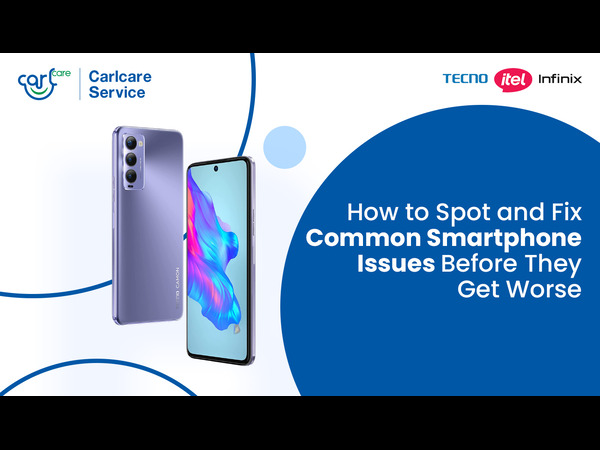
Smartphones have become a ubiquitous part of our lives in the digital age, and they store a wealth of our sensitive information, ranging from personal photos and documents to banking details. Unfortunately, with the increase in smartphone usage, the threat of cyber-attacks has also risen. These attacks can range from hacking to malware and phishing scams, all of which can result in the loss of valuable data or even financial loss.
In this article, we will explore some simple but effective ways to protect your smartphone from cyber threats. By installing security software, keeping your phone updated, being cautious of public Wi-Fi, using strong passwords, being careful with social media, and backing up your data, you can significantly reduce the risk of cyber attacks on your phone.
1. Install Security Software:
Installing security software on your smartphone is an essential step to protect it from cyber threats. Security software, also known as antivirus software, is designed to detect and remove malware, spyware, and other harmful viruses from your phone. These programs are available in various forms, such as free and paid versions, and can be found in the app store. When you install a security software program, it will scan your phone for any existing threats and remove them if found. It will also provide real-time protection against any new threats that may arise in the future. Additionally, these programs may include features such as web filtering, which can help prevent you from visiting potentially harmful websites.
Some popular security software programs for smartphones include Norton, McAfee, and Avast. These programs offer a range of features, including malware protection, anti-phishing, anti-theft, and remote wipe. By installing a reputable security software program, you can significantly reduce the risk of cyber threats and protect your personal data from falling into the wrong hands.
2. Keep Your phone Apps & Software updated:
Software updates are designed to fix any vulnerabilities or weaknesses in the software, making it harder for hackers to exploit them.
When a software vulnerability is discovered, software developers release updates to patch the issue. These updates also include new features and improvements, but their primary purpose is to fix security vulnerabilities. If you don't update your phone, you leave it vulnerable to cyber threats that can exploit those security weaknesses.
Hackers are constantly looking for vulnerabilities in software to exploit for their malicious purposes. By keeping your phone updated, you stay ahead of them by ensuring that your phone has the latest security patches and improvements. Additionally, updating your phone can also improve its performance and fix any bugs or issues that may be affecting it.
To keep your phone updated, ensure that you have the automatic update feature turned on. This will ensure that your phone receives the latest software updates as soon as they are available.
3. Be Cautious of Public Wi-Fi:
Public Wi-Fi networks are a common source of cyber threats as they are often unsecured, and anyone can access them. When you connect to a public Wi-Fi network, you run the risk of having your sensitive information intercepted by hackers.
Hackers can use various methods, such as man-in-the-middle attacks, to intercept data transmitted over public Wi-Fi networks. This includes passwords, login credentials, and other sensitive information that you may be transmitting over the network.
One of the most effective ways to protect yourself when using public Wi-Fi networks is to use a virtual private network (VPN). A VPN creates an encrypted tunnel between your device and the internet, which makes it difficult for hackers to intercept your data. It also hides your IP address and location, making it more difficult for hackers to track your online activity.
4. Use Strong Passwords:
A strong password should be at least eight characters long, and it should include a combination of letters, numbers, and symbols. You can also use a passphrase instead of a password, which is a combination of several words that are easy for you to remember but difficult for others to guess.
It's also important to avoid using the same password for multiple accounts. If a hacker gains access to one of your accounts, they may be able to use that password to access other accounts. To avoid this, use unique passwords for each of your accounts, and consider using a password manager to help you keep track of them.
By using strong passwords, you can significantly reduce the risk of cyber threats and protect your personal information from falling into the wrong hands.
5. Be Cautious of Suspicious Links:
To avoid falling victim to such attacks, you should always be cautious and avoid clicking on suspicious links or downloading unknown apps. Before clicking on any link or downloading an app, always verify its authenticity. Check the source of the link or app and read reviews from other users. If you receive an email from a suspicious sender, do not click on any links or download any attachments.
In addition, it is also essential to keep your phone's security software updated, as it can help detect and remove any malware or viruses that may infect your phone. By being vigilant and cautious, you can protect your phone from cyber threats and keep your personal information safe.
6. Always Choose Authorized Service Center for Your Phone repair
When you take your phone to an unauthorized repair shop, you run the risk of having your phone repaired with counterfeit parts or by technicians who may not have the required expertise. This can lead to further damage to your phone, and it may also compromise the security of your data.
Unauthorized repair shops may also access your phone's data, which can include personal information, passwords, and other sensitive data. This can put your privacy at risk and make you vulnerable to cyber threats.
Authorized service centers follow strict protocols to ensure the security of your phone's data. They take measures to protect your personal information during the repair process, and they have safeguards in place to prevent unauthorized access to your data.
For your itel, TECNO and Infinix phone repair, look no further than Carlcare Service center. At Carlcare, we ensure that your phone is repaired safely and securely, and your data is protected.
Our qualified and trained professionals have the expertise to handle your phone's specific make and model. Additionally, we use genuine parts, which means that your phone's warranty will not be voided.
7. Be Careful with Social Media:
Social media platforms are also a source of cyber threats. Hackers can use social engineering techniques to obtain your personal information. Be careful about the information you share on social media, and always use the privacy settings to control who can see your posts.
8. Back-Up Your Data:
Always back up your data to an external hard drive or cloud storage. In case your phone is infected with malware or virus, you can restore your data from the backup.

















